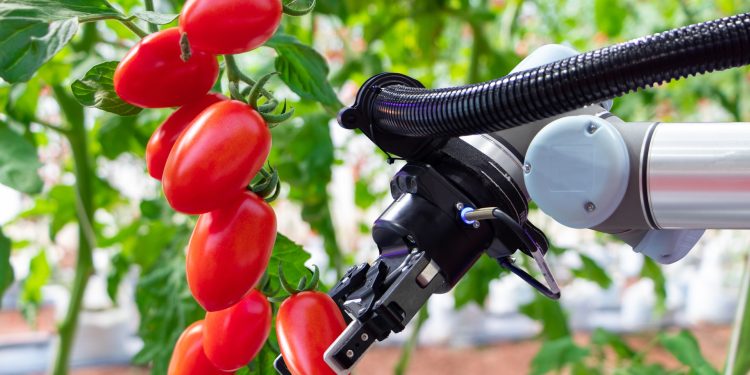#AItechnology #tomatoharvesting #TevelAerobotics #agricultureinnovation #farmautomation #machinelearning #cropproductivity #agriculturalengineering
Israeli start-up, Tevel Aerobotics, has developed an innovative AI-powered robot that can effectively and efficiently pick tomatoes in large-scale farms. This groundbreaking technology is poised to revolutionize the way tomato harvesting is done, thereby improving productivity, reducing waste, and increasing profits for farmers.
According to recent statistics, the global tomato market size is expected to grow from USD 53.4 billion in 2020 to USD 65.8 billion by 2026, at a CAGR of 3.2%. This growth is attributed to the increasing demand for processed tomato products, particularly in developing countries. However, the current process of tomato harvesting is not without its challenges, as it often involves manual labor and is time-consuming, resulting in high costs and low yields.
Fortunately, Tevel Aerobotics has developed a solution to this problem, with the launch of the first-ever AI robot for picking tomatoes. The robot uses machine learning algorithms to identify and pick ripe tomatoes, while avoiding damaging the plants or unripe tomatoes. This technology is expected to significantly reduce labor costs and increase productivity in tomato farming, resulting in higher yields and profits for farmers.
Moreover, the robot is equipped with a proprietary AI-based control system that allows it to operate autonomously in the field, with minimal human intervention. This ensures that the robot can operate 24/7, making it an ideal solution for large-scale tomato farms.
The launch of the first AI robot for picking tomatoes is a game-changer in the agriculture industry. It promises to improve productivity, reduce waste, and increase profitability for farmers. With this innovation, farmers can now streamline their tomato harvesting process, save time and costs, and produce higher yields. This technology is just the beginning of what is possible when AI is applied to agriculture, and we can expect more groundbreaking innovations in the near future.










